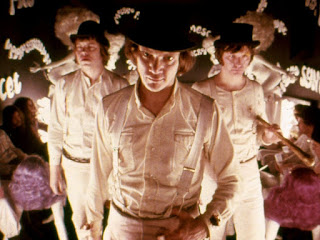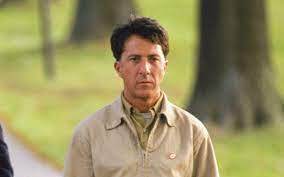Film Review: No Time To Die
Perhaps it’s
fitting that my first review in a while will be on a frequently pushed back
release like ‘No Time To Die’. For many people this instalment in the James
Bond series has been highly anticipated, especially after frequent pushbacks
due to lockdown. In fact, many may say these delays have been instrumental in
the continued closure of UK cinemas. Whilst I’ve never been as interested in
James Bond as others, often finding his films too campy, outdated or dull
(particularly with the previous instalment, ‘Spectre’) initial trailers had me
excited for the film. And after watching this film, I can firmly say it made
for a great return to cinemas.
‘No Time To
Die’ follows on from the events of ‘Spectre’, as Bond (Daniel Craig) and
returning love interest Madeline Swann (Léa Seydoux) as they face an all-new
threat. This threat comes in the form of Lyutsifer Safin (Rami Malek), a
bioterrorist with a toxin that threatens the future of humanity. When written
down, this sounds a lot like a traditional Bond plot. However, I found the film
was able to distinguish itself through the context of this iteration of the
character. For most of this Bond’s career his missions have been relatively
grounded, take the gritty realism of 2009’s ‘Casino Royale’ for example. So,
when he’s placed against this large-scale threat, it feels less like a repeat
of all the cliches and more like an escalation of the story so far, blending
the tones of the new and old films together. Here it feels like we’re truly
seeing James Bond as the legendary secret agent other actors have shown him as
from the start. Along with this, the film is able to touch on strong emotional
moments. By placing a focus on James’ relationship with Madeline, the film strongly
demonstrates the vulnerable side of the character from the prior films. As a result,
to me, the film felt like a powerful end to James Bond’s character arc, and as
a result the perfect send off for Daniel Craig.
But no Bond
film is complete without its villain, how does Safin work out? Admittedly, it
seems a bit strange to end this era of the series with an entirely new villain,
as opposed his most iconic villain, Blofeld (portrayed by Christoph Waltz in
the previous film, ‘Spectre’). But considering the mixed reception to that
iteration of the character, perhaps this decision is for the best. Whilst Safin
does fit a lot of Bond villain tropes (with many speculating he’d secretly be the
iconic Dr. No), I felt they were still able to stand out. A lot of this has to
do with Malek’s performance, who’s monologues add a haunting and disturbed
quality to the character, which helps demonstrate how affected he was by his
backstory. In this opening scene, he's set up like a masked killer in a horror
film helping to add to his terrifying presence. Furthermore, his history with
Madeline set up in this opening helps add to the very personal storyline,
making him feel even more of a threat to Bond. Despite all of this, there is
one feature of Safin that serves as both a benefit and a drawback, this being
his screentime, or lack thereof. On the one hand, keeping him mostly behind the
scenes helps add suspense to the character, making him seem like a looming shadow
over the events. This is particularly fitting for a character who is meant to
be more of a mental threat than a physical one. On the other hand, this often
makes the character feel strangely disconnected from their own plot, and almost
seems like poor utilisation of such a talented actor. And whilst the film tries
to lean into the idea that Safin isn’t truly important to Bond, it still feels
like he could have been used better. Overall, despite their faults, Safin still
felt like an effective villain for the film and one I can see being remembered
for years to come.
However, my
main criticism of ‘No Time To Die’, involves the side characters. Throughout
the film we get introduced to two new cast members, these being Nomi (Lashana
Lynch), a new “00” agent, and rising CIA agent Paloma (Ana De Armas). These characters
feel very interesting, and their action scenes are just as compelling as Bond’s.
This is particularly the case for Paloma, who the film seems self-aware about how
entertaining she is to watch. However, these characters never feel fully
fleshed out, either due to a lack of screentime or lack of development. This
ties back to one of my issues with Safin, where I felt he wasn’t given enough
screentime either. In the case of Nomi and Paloma, I personally believe the two
were included as something of a “test run” for the next series of Bond films,
where they’d be carried over, but I have no evidence to prove this. As a result,
despite initially seemingly like great additions to the Bond franchise (and
hopefully ones we’ll see for some time to come), these characters never fully
lived up to their full potential.
Overall, ‘No
Time To Die’ may not be the most unique Bond film for the most part, but it is nonetheless
a thrilling viewing experience and a powerful swan song for Daniel Craig in a role
he’s truly made his own. Whilst I can see why some people would dislike the film,
I personally really enjoyed it, despite some issues. After all of this, the future
of James Bond is uncertain, with the direction for the following films and the
face of the franchise being highly debated. Whilst I’m not sure what my desired
direction would be, if the following instalments are able to match this one’s quality,
I think I’ll be interested in the series for years to come.




Comments
Post a Comment